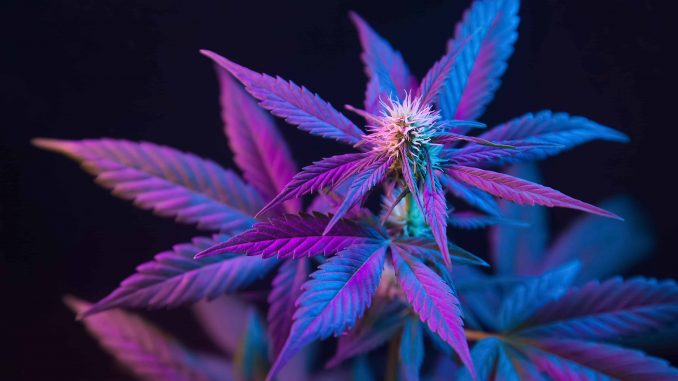
[ad_1]
Activists intent on legalizing recreational pot sales in Colorado Springs, Colorado cleared a significant hurdle this week with the announcement that two related adult-use cannabis sales voter initiatives have qualified for the November ballot.
The first ballot measure advanced by the group Your Choice Colorado Springs would legalize recreational weed sales in Colorado Springs, while the second would impose a 5% tax on purchases of adult-use cannabis. If passed by the voters, tax revenue from recreational sales would fund public safety improvements, expand mental health services, and support PTSD programs for veterans.
“Voters in the city stepped up and demanded their voice be heard with respect to ending the prohibition of recreational cannabis sales in Colorado Springs,” Your Choice campaign manager Anthony Carlson said on Monday after announcing the measures had qualified for the ballot. “Especially in these tough economic times, it is critical to ensure every tax dollar that rightfully belongs to Colorado Springs taxpayers stays in our community working to improve our quality of life.”
Colorado voters legalized sales of recreational cannabis with the passage of Amendment 64 in 2012, and regulated sales began in the state two years later. However, the Colorado Springs local government banned recreational cannabis sales in 2013, although the city is home to more than 100 medical dispensaries.
Your Choice Colorado Springs announced its plan for the ballot measure to legalize recreational cannabis sales in January and began circulating petitions to qualify the measures for the ballot in March. Activists had until June 20 to collect 19,245 signatures from Colorado Springs residents. The group far exceeded the requirement, turning in more than 98,000 signatures last month.
Pot Taxes Go to Other Cities
Your Choice Colorado Springs maintains that city residents who purchase adult-use cannabis legally must travel to other communities, which reap the tax benefits of recreational cannabis sales. If the initiatives succeed in this November’s election, a portion of the tax proceeds will help fund mental health services and support PTSD programs for military veterans. Colorado Springs has one of the highest veteran populations in the country, with 17% of adult residents identifying as veterans compared to the national average of 7.1%, according to a recent report from The Center Square.
“Our region led the state in suicides last year,” Carlson said, noting that 30% of those who took their own lives were veterans. “This initiative will provide significant funding to ensure we finally have the resources to take control of this crisis.”
Under the legalization initiative, no additional cannabis retail stores would be permitted in the city, but existing medical cannabis retailers would be able to add recreational cannabis on the same premise as their medical location. Karlie Van Arnam, a small business owner and lead elector sponsoring the initiatives, said the campaign “is about practicality.”
“It makes zero sense to continue the prohibition of a product that is 100% legal to possess and consume in our city,” said Arnam. “This campaign isn’t just about revenue. It’s about personal freedom and choice for our residents. It’s about supporting our small businesses and the thousands of people they employ. It’s about expanding mental health access for citizens and ensuring our veterans have access to world-class PTSD programs right here in Colorado Springs. It’s about time this decision is taken out of the hands of a few politicians and given to the people.”
Colorado Springs Mayor Opposes Legalization
Colorado Springs Mayor John Suthers, who has opposed approving recreational cannabis sales in the city for years, issued a statement warning voters about potentially negative aspects of legalizing.
“I remain vehemently opposed to legalizing recreational marijuana in Colorado Springs. There are no regulations in Colorado limiting THC levels which continue to rise and adversely impact young marijuana users,” said Suthers. “In cities with recreational marijuana, it’s not paying for the full cost of the damage it’s doing. Denver, in particular, offers a cautionary tale. In three years, it has dropped from No. 2 to No. 55 in the U.S. News & World Report rankings for best city to live. The pervasive influence of marijuana is a significant factor.”
Carlson said that despite the opposition from city leaders, voters are likely to approve the ballot measure in this November’s general election.
“Colorado Springs residents overwhelmingly voted to approve Amendment 64 in 2012. Our City Council and Mayor have repeatedly defied the will of Colorado Springs voters by keeping recreational cannabis—and its tax revenues—out of Colorado Springs for the past decade, at a loss of $150 million,” Carlson said in an email to High Times. “Now our citizens have spoken again, submitting a record 98,000 signatures—more than 2.5 times more than required—to get these measures on the ballot. The will of Colorado Springs citizens is crystal clear: They want to keep tax revenues from recreational cannabis in Colorado Springs to support efforts including mental health and veteran services.”
[ad_2]
Source link

Soyez le premier à commenter